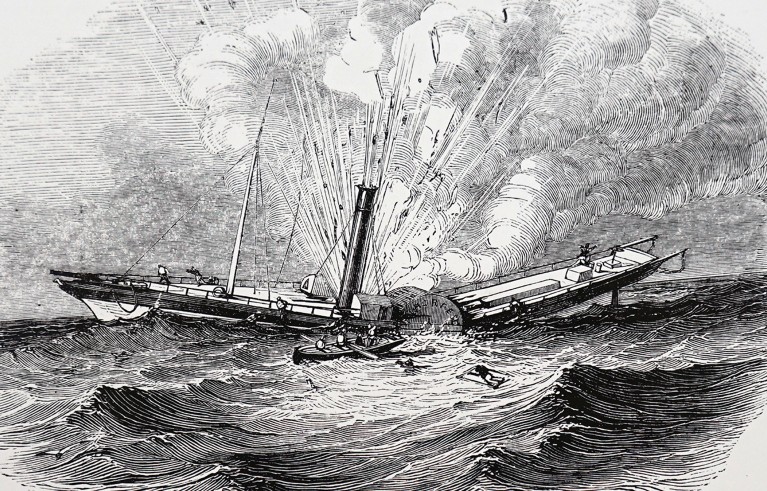"Wicked Problems: How to Engineer a Better World" (Nature book review)
https://www.nature.com/articles/d41586-024-01519-1
BOOK REVIEW
27 May 2024
Tackling ‘wicked’ problems calls for engineers with social responsibility
Many technologies are high-risk, and their problems cannot be fixed by policy alone; engineers must embrace social responsibility.
By Susan Krumdieck
 In the nineteenth century, steamboat explosions were common — until they weren’t.Credit: Universal History Archive/UIG/Getty
Wicked Problems: How to Engineer a Better World
In the nineteenth century, steamboat explosions were common — until they weren’t.Credit: Universal History Archive/UIG/Getty
Wicked Problems: How to Engineer a Better World Guru Madhavan W. W. Norton & Company (2024)
Society relies on engineers to deliver almost everything it uses, from food and water to buildings, transport and telecommunications. But new technologies are often rushed into service, for market reasons, before potential risks and consumer behaviours are understood, and well before sufficient regulation is put in place to protect the public.
In Wicked Problems, biomedical engineer and US policy adviser Guru Madhavan considers the implications of these human-made vulnerabilities using striking stories — such as a tsunami of molasses, aeroplane crashes, exploding steamships and infants decapitated by airbags. By exploring the interplay between engineers and policymakers, Madhavan shows how engineering can produce problems that policy cannot fix, and how successful systems can create socially unacceptable risks.
Madhavan focuses on ‘wicked problems’, which emerge “when hard, soft and messy problems collide”. Time and time again, a technology becomes profitable and is widely adopted, then its problems become clear and public alarm grows. A period of debate follows, marked by inflamed emotions, news coverage, litigation, denial of responsibility and political impotence. Eventually, corrective mechanisms are developed, implemented and enforced with updated standards. These patterns and problems of rapid technological development are becoming recognized. And there are plenty of modern examples, from social-media platforms and artificial-intelligence systems to self-driving cars.
[...]
